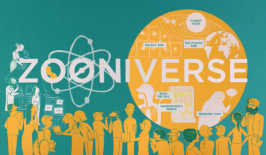Civic Technology is perhaps best translated as “digital civic engagement” and refers to citizens and civil society participating in research and policy via digital applications – apps, websites, platforms and more. The digital tools can create better access to information and facilitate communication and networking between citizens, organisations, communities, companies, politics and administration. This should enable more people to participate in political processes and, through more transparency, government action should be directly monitored and accountability strengthened.
Classic examples are platforms which allow direct interaction with the government. These can come in various shapes and sizes. For example, they may be simple petition websites, such as the UK government’s Petition.Parliament.uk – which guarantees a government response if a certain petition threshold is reached, or information enquiry websites like Germany’s Frag den Staat (Ask the State). Others may be operated by volunteers outside of the government, who ensure transparency of government operations. Another German example is Offener Haushalt (Open Budget). Here, citizens can view the budget of the federal, state and local governments with data compiled by volunteers. Even if the definitions differ slightly in detail, the core of Civ Tech is always about empowering citizens through the use of technology in some form.
Civic Tech in Environmental and Climate Protection
The range of civic tech applications is wide, as the Civic Tech Field Guide, a global collection of civic tech tools and projects, shows. Even if most projects are about bringing more transparency into political decisions and processes, civic tech can also increasingly be found in environmental and climate protection. For example, city dwellers can install sensors on their balconies to reveal how much pollutants are in the air they breath. All this information can then be combined together to create maps of air quality in the city. Other apps may allow citizens to give feedback regarding the condition of cycle paths, or draw attention to companies using unnecessary plastic packaging. In the field of research, volunteer Citizen Scientists can record animal populations via satellite images or identify methane emissions or illegal deforestation. This can all result in an important database for politics and civil society to help spur demand for effective measures.
The above-mentioned examples also show two other characteristics of civic tech. Firstly, they are usually developed by volunteers, designers and other data enthusiasts. And secondly, the applications are developed on the basis of open administrative data such as financial and environmental data, data on educational institutions and statistical data. In addition, many of the tools are freely available to the public in the sense of the open source approach, so that they can not only be used freely, but also permanently further developed and adapted.
And Public Interest Tech?
There remains another term to be clarified that is often mentioned in the same breath as civic tech: Public Interest Tech. Patricia Leu, who is responsible for communication and content strategy at the Prototype Fund, says:
“Public interest tech means the use of technology for the good of society – and this can be anything from a tool for citizen participation to a decentralised communication infrastructure. The important thing is that public interest tech is in the interest of users and is developed in a user-centred way, detached from market forces.”
Public interest tech is thus a concept that also includes civic tech applications, but thematically expands the focus: instead of “only” enabling and facilitating interactions between citizens and the state or research, community technologies and infrastructures are subsumed under this term that also include ethical, legal, political and social challenges of technological change. Public interest technologies thus pose questions such as: How can digital tools address food insecurity? How can communities come together through virtual networks to address environmental problems collectively?
Addressing Environmental Challenges with Digital Civic Engagement
In our RESET Special Feature “Civic Tech – Ways out of the Climate Crisis with Digital Civic Engagement“, we present a wide range of civic and public interest tech projects that enable and promote citizen engagement and participation in environmental and climate protection. And we talk to people who are following the developments in civic tech and explore the opportunities and challenges of digital civic engagement together with them. Read on now!
This article is part of our Special Feature “Civic Tech – Ways Out of the Climate Crisis with Digital Civic Engagement”. You can find all articles of the Special Feature here: Special Feature Civic Tech

The Special Feature is part of the project funding of the German Federal Environmental Foundation (Deutsche Bundesstiftung Umwelt – DBU), in the framework of which we are producing four special features over two years on the topic of “Opportunities and potentials of digitalisation for sustainable development”.
More information here.
This article is a translation of an original article from the German-language RESET website.








